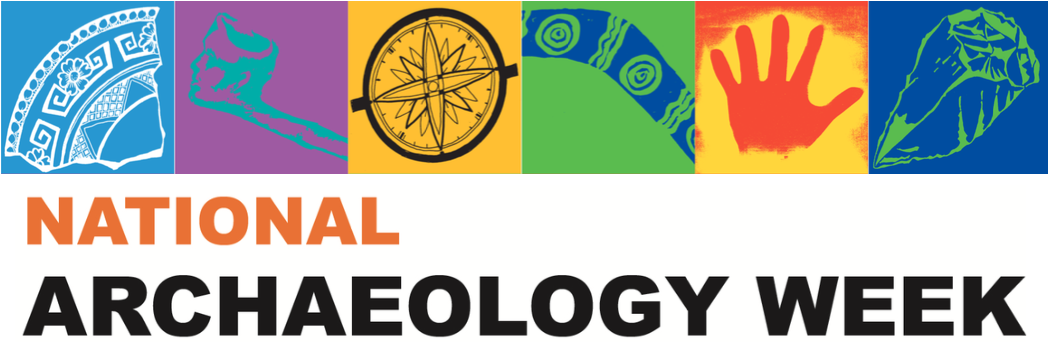Talk 1: Community-focused research, considering sites susceptible to sea-level rise in the Torres Strait region. Speaker: Dr Kelsey Lowe
Talk 2: Pleistocene Human-Water Interaction in the southern Kalahari Desert, South Africa. Speaker: Dr Benjamin Schoville
On this final day of the UQ Anthropology Museum seminar series, Dr Kelsey Lowe and Dr Benjamin Schoville present on their research followed by a catered lunch (RSVP required).
Talk 1: Community-focused research, considering sites susceptible to sea-level rise in the Torres Strait region. Speaker: Dr Kelsey Lowe
The Torres Strait Islands cover an area of 50,000 sq km and include 300 islands, with 17 islands as home to community settlements. Although this regional maritime culture includes seascapes rich in cosmological and spiritual meaning (intangible heritage), many sites (tangible heritage) that constitute an important component of cultural identity are under threat due to rising sea levels resulting from climate change.
Home to the Kurareg people, the island of Murulag was significantly impacted by this sea-level rise, including burial sites exposed through king tide activity. The impact of sea-level changes on burial sites and the destruction of cultural sites, affects First Nations groups globally.
Kelsey will share collaborative community-focused research carried out by UQ archaeologists with Kaurareg people including salvage excavation and a ground-penetrating radar (GPR) surveys carried out as part of this study; GPR was used to locate other potential burials within the neighbouring dune of the burial. Coastal modelling of shoreline loss is also being undertaken. This study is the first time an archaeological investigation has commenced in a sensitive site region. The project collaborators hope this research will lead to an enhanced strategy for managing similar sites susceptible to sea-level rise in the Torres Strait region.
About the speaker: Kelsey is an archaeologist and researcher located in Brisbane. She has over 22 years' experience in field and laboratory-based archaeology, specialising in archaeological geophysics, geoarchaeology, remote sensing and geographic information systems (GIS). Her work has taken her to places in Queensland, New South Wales, Northern Territory, South Australia, Tasmania and Western Australia, and internationally on archaeological sites in Africa, the Caribbean, Europe, Indonesia, Myanmar, and North and South America. Currently, she works as a Principal Program Officer for the state government; however, she is also affiliated with the University of Queensland.
Talk 2: Pleistocene Human-Water Interaction in the southern Kalahari Desert, South Africa. Speaker: Dr Benjamin Schoville
Water security represents a key challenge of the Anthropocene. However, our species evolutionary history involves arid and semi-arid environments. This talk focuses on Pleistocene adaptations at Witberg 1, a previously unknown palaeolake on the Tswalu Kalahari Reserve in the semi-arid Northern Cape, South Africa. Site provisioning with stone tools and large unmodified cobbles indicates significant exploitation of the region, possibly including construction of hunting blinds. Developing strategies for living in dry regions may have been a key prerequisite for humans expanding beyond Africa.
About the speaker: Dr Ben Schoville is a UQ Honorary Senior Fellow in the School of Social Science and a Senior Archaeologist at the Everick Foundation. His field research focuses on the technology and behaviours of early modern humans from Pleistocene archaeological sites in South Africa. He recently received an ARC Discovery Project grant titled, “The Impact of Water Stress on Early Humans in the Kalahari Desert”.
Join the curators and contributors for the final seminar presentations by Anthropocene Exhibition project contributors followed by light lunch at the UQ Anthropology Museum. RSVP to anthmuseum@uq.edu.au
Part of the National Archaeology Week Lunchtime Seminar Series. Find the series details here.
When: 12 to 2pm AEST, Friday 26 May 2023
Where: The University of Queensland Anthropology Museum, Level 1 Michie Building, St Lucia Qld 4072
For more information:
Kelsey’s talk - https://anthropologymuseum.uq.edu.au/event/session/901
Ben’s talk - https://anthropologymuseum.uq.edu.au/event/session/906
Presented as part of the Anthropocene: Linking past and present to shape a better future exhibition at the University of Queensland Anthropology Museum
Presenting collaborative models of academic research informed by traditional cultural knowledge drawn from The University of Queensland researchers and First Nations community-led initiatives.
In recent decades there has been increasing awareness and alarm about the consequences of human actions on our collective future. Human-caused extinctions, sea-level rise and habitat fragmentation threatens countless species and critical ecosystems that support all human societies. The scale of these transformations has led some to refer to this era as the Anthropocene, the geological epoch in which humans play a dominant role in shaping the Earth system. Over hundreds of thousands of years, humans have experimented with an extraordinary array of subsistence practices, economies and socio-political systems. One of the defining features of our species is our ability to access information about these earlier lifeways, and to learn from our past.
The deep time history of this country shows First Nations communities prospering in a climatically changeable continent for tens of thousands of years. This occurred through the extremes of the last ice-age and the reshaping of Australia as sea-levels rose by more than one hundred metres. This exhibition draws upon the UQ Anthropology Museum collection and considers these transformations alongside recent research, to challenge and expand ideas around heritage protection, biodiversity loss and the impacts of climate change on cultural practices.
Featuring works from artwork by Quandamooka artist Megan Cope, voices of Dunghutti elders from the Macleay Valley region and video work of cultural fire practices carried out on Dja Dja Wurrung country, alongside artworks by artists Nora Walytjaka Holland, Kunmanara (Niningka) Lewis, Naata Nungurrayi, Ningura Napurrula, Tjunkaya Tapaya and Barrupu Yunupingu.
Film and animated footage by: Rodney Carter, and Chris Bennie (Dja Dja Wurrung | Djandak Wi), Amy Bruce (Macleay Valley interviews), Miriam Alexander (animated intro).
The exhibition is open to the public throughout the year from May to December 15.
When: Daily from 11am to 3pm
Where: The University of Queensland Anthropology Museum, Level 1 Michie Building St Lucia Qld 4072
For more information: https://anthropologymuseum.uq.edu.au/exhibitions/anthropocene-linking-past-and-present-shape-better-future


